(Page créée avec « {{Tuto Details |Main_Picture=E-Textile_Monster_FG9MDO8K3XFLLCR.LARGE.jpg |Main_Picture_annotation={"version":"2.4.6","objects":[{"type":"image","version":"2.4.6","originX"... ») |
|||
| Ligne 5 : | Ligne 5 : | ||
|Area=Electronics | |Area=Electronics | ||
|Type=undefined | |Type=undefined | ||
| − | |Difficulty= | + | |Difficulty=Medium |
| − | |Duration= | + | |Duration=1 |
| − | |Duration-type= | + | |Duration-type=hour(s) |
| − | |Cost= | + | |Cost=10 |
| − | |Currency= | + | |Currency=EUR (€) |
}} | }} | ||
{{Introduction | {{Introduction | ||
| Ligne 161 : | Ligne 161 : | ||
}} | }} | ||
{{PageLang | {{PageLang | ||
| + | |Language=en | ||
|SourceLanguage=none | |SourceLanguage=none | ||
|IsTranslation=0 | |IsTranslation=0 | ||
| − | |||
}} | }} | ||
{{Tuto Status | {{Tuto Status | ||
|Complete=Draft | |Complete=Draft | ||
}} | }} | ||
Version actuelle datée du 4 février 2020 à 14:39
Sommaire
- 1 Introduction
- 2 Étape 1 - Design Your Monster
- 3 Étape 2 - Create a Template of Your Monster Shape
- 4 Étape 3 - Cut Out Your Monster in Felt
- 5 Étape 4 - Draw Out the Circuit
- 6 Étape 5 - Test LEDs
- 7 Étape 6 - Sew in Pocket for Battery Pack
- 8 Étape 7 - Sew Battery Pack Into Place
- 9 Étape 8 - Sew to Connect Battery Pack to First LED
- 10 Étape 9 - Sew to Connect LEDs
- 11 Étape 10 - Create the Switch and Complete the Circuit
- 12 Étape 11 - Sew on Extra Features
- 13 Étape 12 - Sew Together and Stuff Your Monster
- 14 Étape 13 - Sew Up the Final Part
- 15 Commentaires
Introduction
This activity can be used to introduce the theory of simple circuits to young participants and with the inclusion of a home made switch it can demonstrate the importance of a closed circuit. It can be used to talk about specific components such as LEDs and their requirements when being built into a circuit.
More sophisticated iterations of the activity could include a programmable board (Arduino or ESP32). There could be further stages for participants to also make the e-textile monster controllable remotely via a smartphone.
Objectives and Learning Outcomes of this activity:
- To create something which integrates electronic components with textiles
- Allows for creativity and design
- To think about how the design can effect the function (including a switch)
- To learn about simple circuitry
- To learn about basic circuit components
- To use basic sewing skills
- To give an introduction to combining two different disciplines for the creation of something new
Supplies:
For simple circuit E-textile monster:
- Felt
- Thread and needle
- Conductive thread
- Stuffing
- LEDs (or other simple electrical components)
- Battery pack and batteries
- Material for switch (tin foil or other metallic material such as copper strips)
Matériaux
Outils
Étape 1 - Design Your Monster
This is where you need to decide what shape you want your monster to be and what components it will include. You need to make sure there is room for each of your components and the battery pack as well as decide where you want to squeeze the monster for the components to turn on.
TIP: do not make your monster too big making your circuit components too spread out! Otherwise you will spend a long time sewing to connect the components together
Étape 2 - Create a Template of Your Monster Shape
Using card, draw out the shape of your monster and cut it out.
Étape 3 - Cut Out Your Monster in Felt
Fold the felt in half and draw out the design onto the felt using the template.
Make sure there is a part of the body that lies over the crease so that the back and front remain together after being cut out (as shown in the pictures).
Étape 4 - Draw Out the Circuit
It is always best to draw out the circuit before you start making it to see how every needs to be connected.
This is also a great pedagogical tool and can be a time to talk about the different components in the circuit and how they work, as well as the importance of a closed circuit for the flow of current.
Étape 5 - Test LEDs
Check your LEDs work by touching each leg of the LED with a wire from the battery pack.
The LED will only work in one orientation, as there is an Anode (positive connection - long leg) and a Cathode (negative connection - short leg), meaning that the current is only able to flow through the LED in one direction.
Keep note of which cable from the battery pack needs to be connected to each leg of the LED. It will be important to get this right when putting your monster together.
Étape 6 - Sew in Pocket for Battery Pack
Cut out a small square of felt. Sew this onto the inside of what will be the back of the monster.
Sew along 3 edges so that the battery pack can slide in from the top.
Étape 7 - Sew Battery Pack Into Place
You will need one cable of the battery pack travelling towards the front piece of your monster (where the LEDs will be) and the other cable travelling towards where you want your switch to be (where you will squeeze the monster to make the components work).
Sew these cables into place as shown in the picture.
Étape 8 - Sew to Connect Battery Pack to First LED
Pierce the LEDs through the front piece of the monster, where they need to be positioned. Make sure they have the correct orientation so that the first leg is the correct one to connect with the cable coming from the battery pack.
Using the conductive thread, connect the cable of the battery pack to this leg of the LED. Sew repeatedly over the exposed end of the battery pack and the leg of the LED to ensure that there is a connection.
Étape 9 - Sew to Connect LEDs
This part of the activity can be a good point to stop and introduce the idea of circuits in series and in parallel. With more than one LED being used, a decision should be made on how they will be connected.
In this example we have kept it simple by connecting them in series.
For this, check that the second LED is in the same orientation as the first and connect the 2nd leg of the first LED with the 1st leg of the second LED.
At this point you can check that the first LED works by touching the other battery pack cable with your needle and thread (closing the circuit).
Étape 10 - Create the Switch and Complete the Circuit
For the switch you will need to position 2 pieces of metallic material (this can be copper strips or even just tin foil) on either side of the monster. They need to line up when the monster is folded.
Stick these pieces in place. These pieces then need to be connected into the circuit using the conductive thread.
From the leg of the LED that currently is not connected to anything, sew to the metallic patch. Make sure to sew a few stitches into the metallic patch to ensure that the current flows through it.
Complete the circuit on the back piece by connecting the end of the cable to the metallic patch with the conductive thread. Make sure connections are made well at each end.
Étape 11 - Sew on Extra Features
Add extra features to your monster, like a mouth, by cutting out felt and sewing it on.
Make sure to sew on a patch so that you know where to squeeze it to make the components work.
Étape 12 - Sew Together and Stuff Your Monster
Sew around the monster closing up the body. A blanket stitch tends to work well for this. Make sure to leave a gap at the end so that you can add the stuffing.
Through the gap, add the stuffing. Use a pencil to push it into the corners.
Make sure you do not over stuff where the metallic patches are. It is important that the monster is stuffed enough so that when not squeezed, the metallic patches do not touch, but when squeezed they are able to come into contact with each other. Make sure to try it out before sewing up the final part.
Étape 13 - Sew Up the Final Part
Sew up your monster so that all the stuffing stays in.
You now have your monster!!
Press on your switch and watch him light up!
Draft
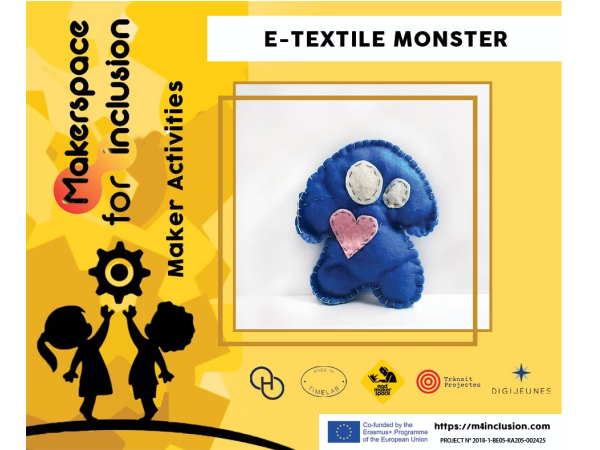
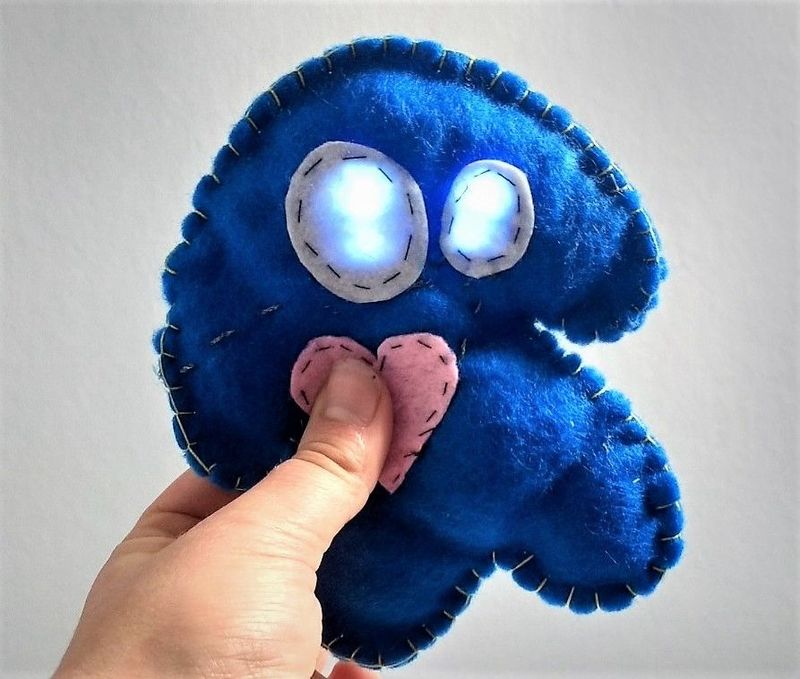
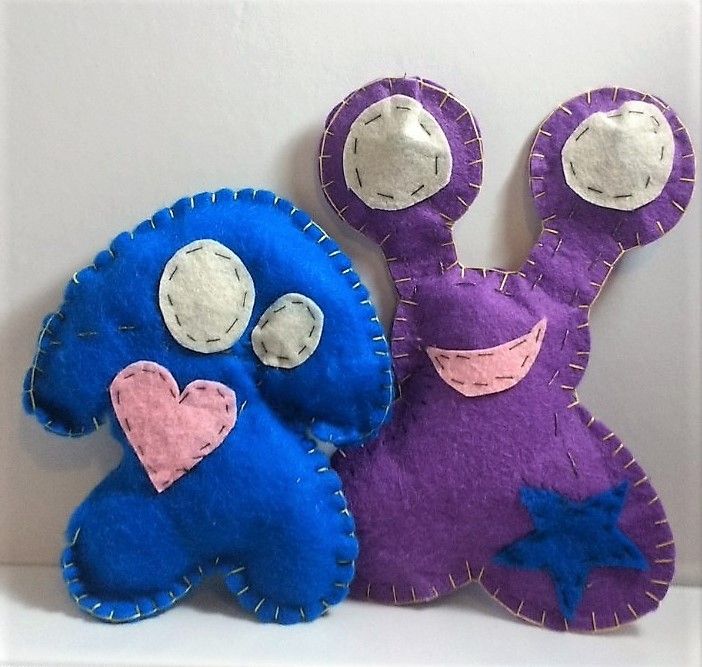
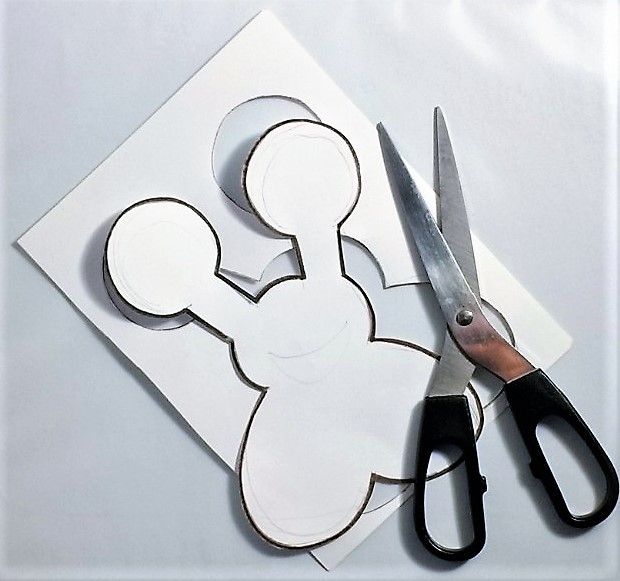
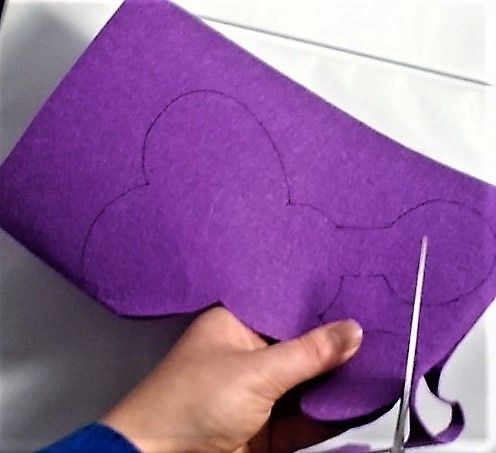
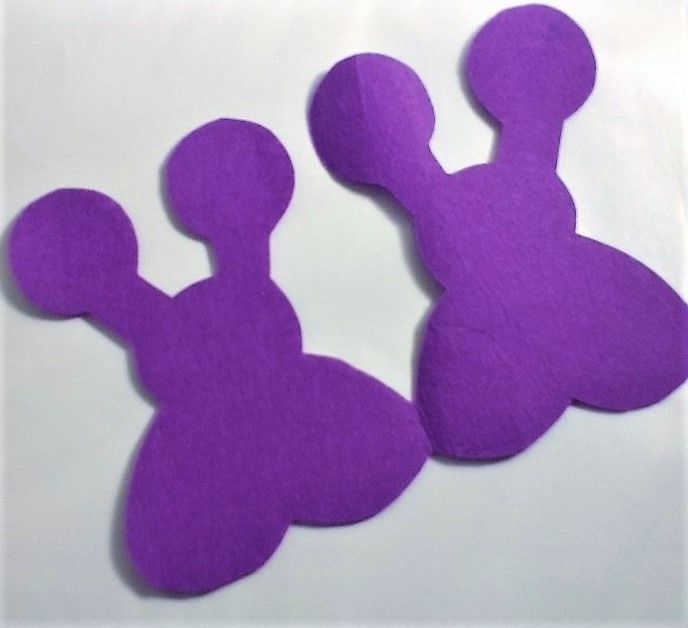
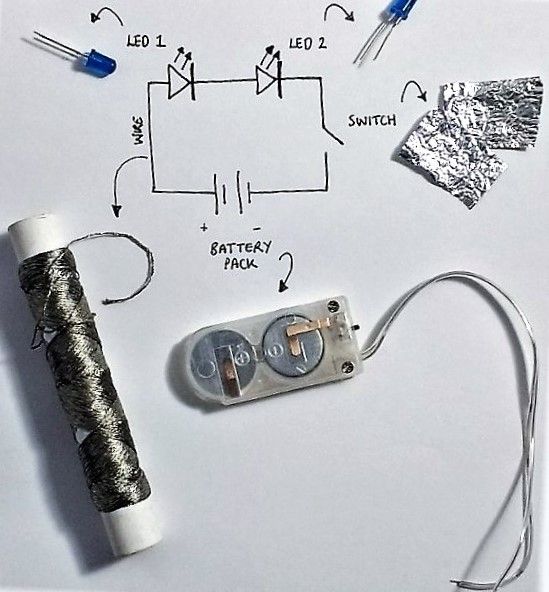
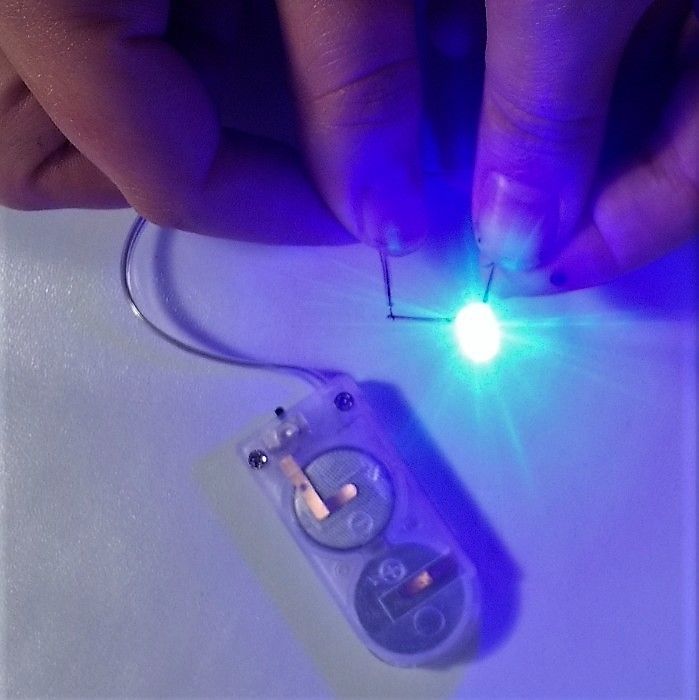
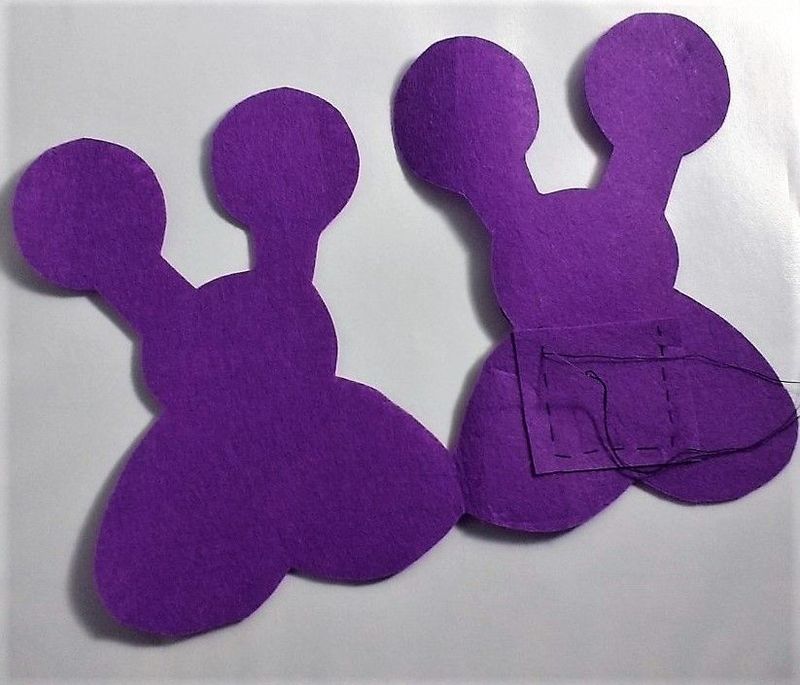
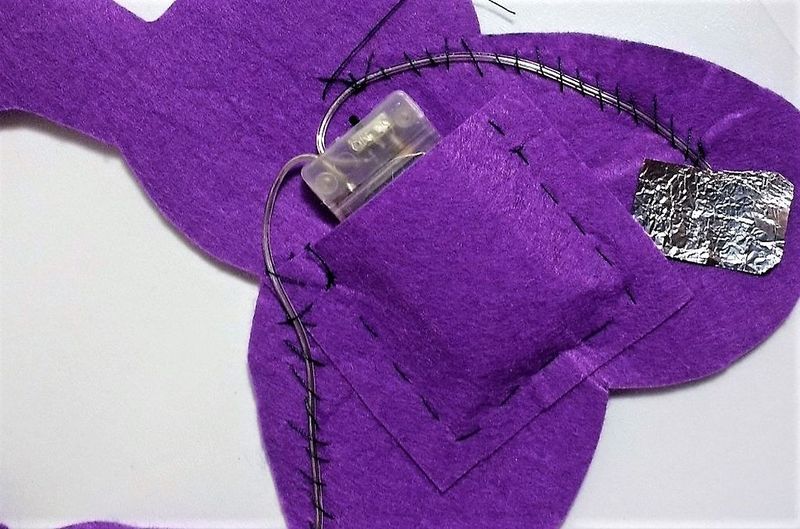
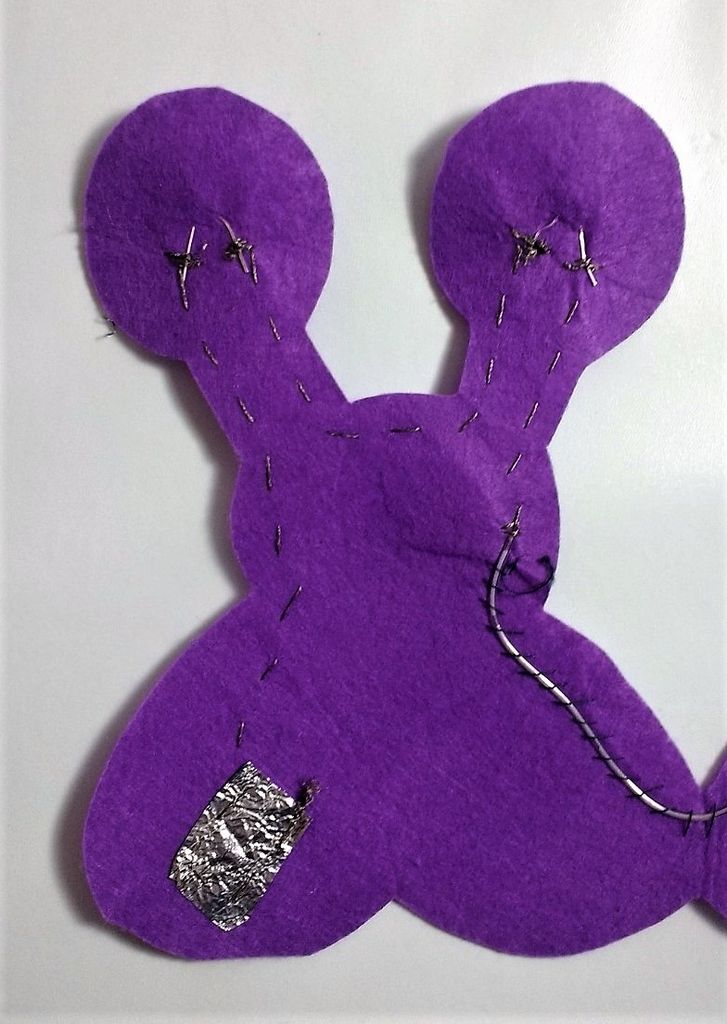
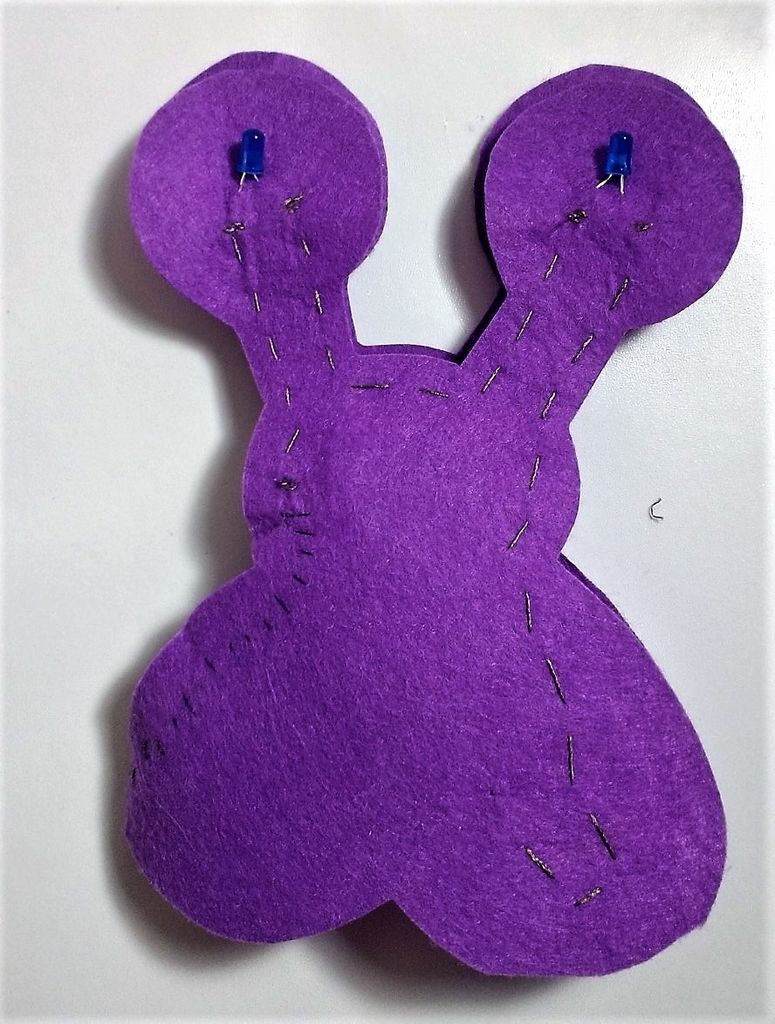
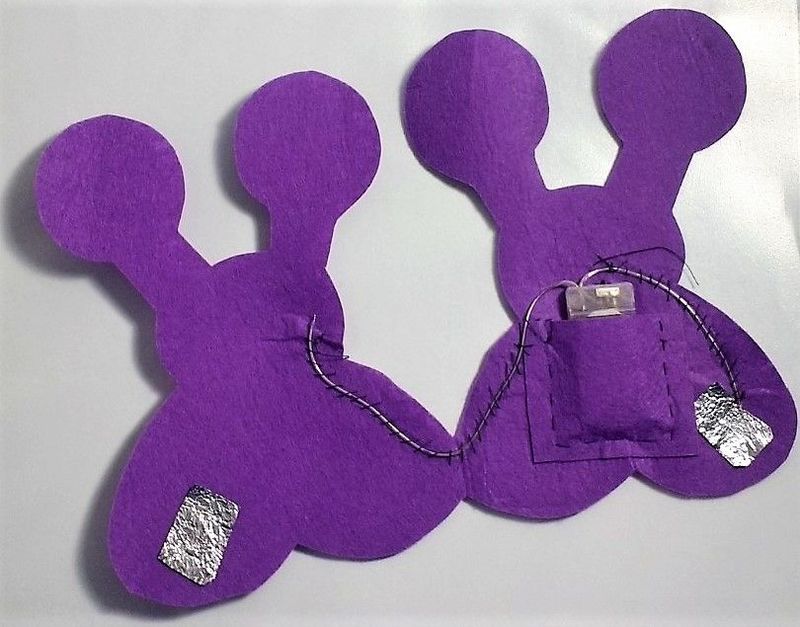
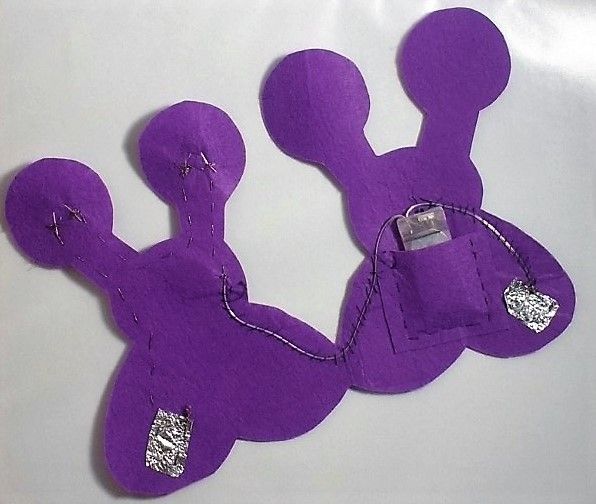
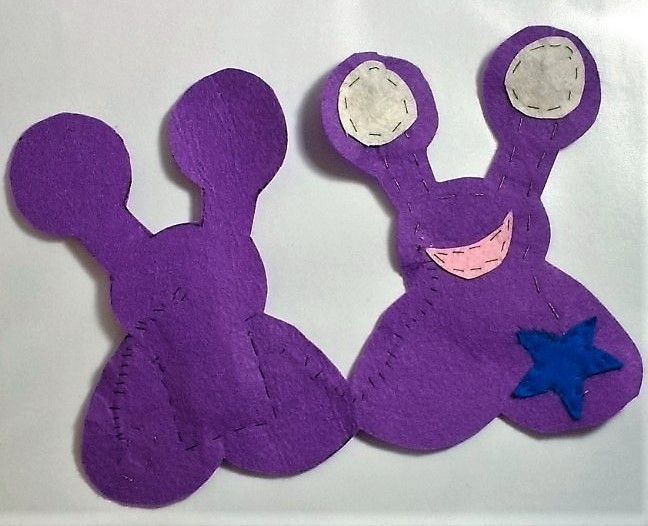
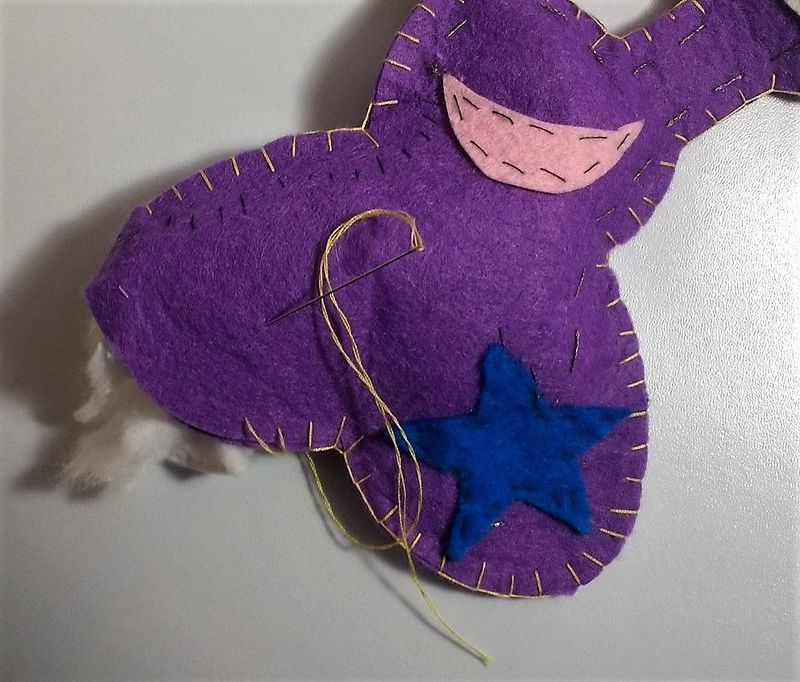
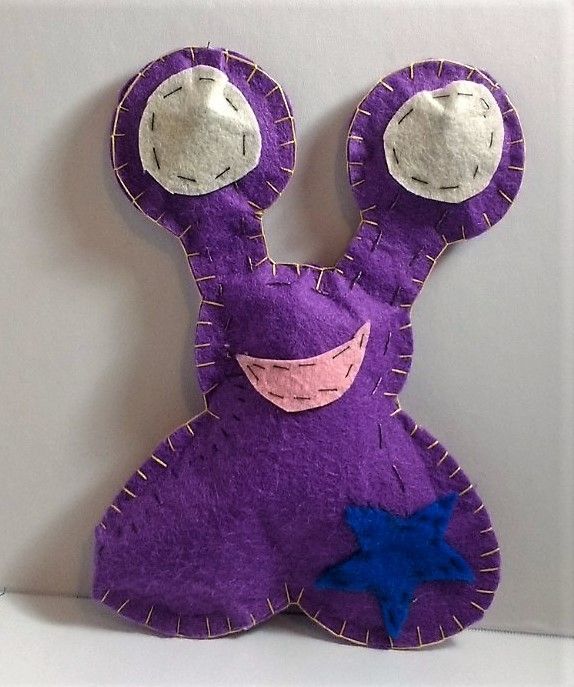
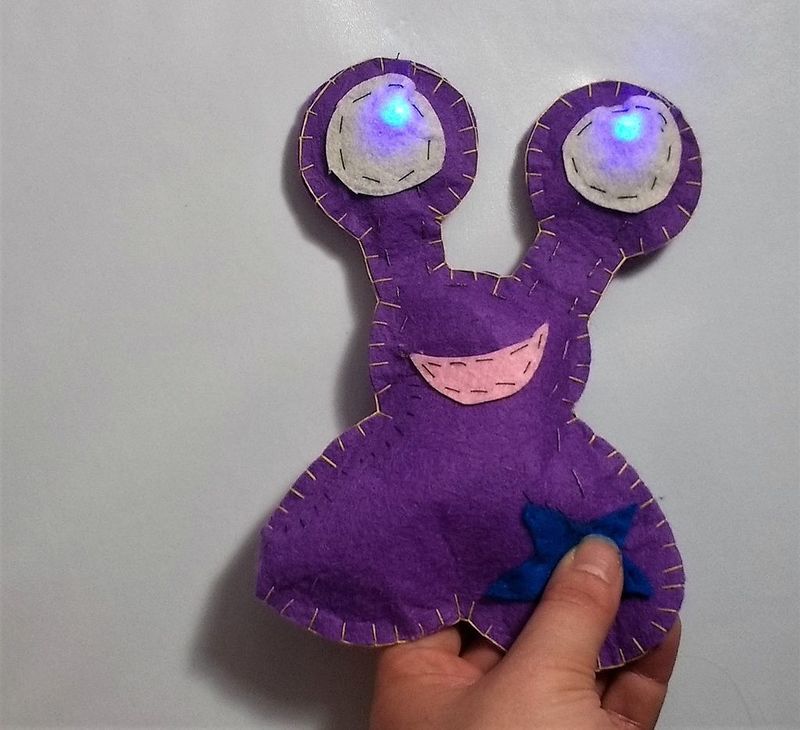
 Français
Français English
English Deutsch
Deutsch Español
Español Italiano
Italiano Português
Português